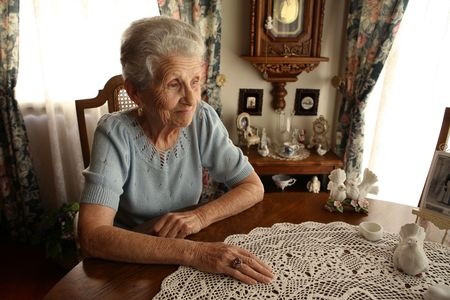Time to bring in help for mom and dad, but they are resistant to care…
 You have finally decided that you want to bring in a home care company to care for your parents, but they are resistant to having someone come into their home. You are not alone. Resistance to care is one of the major challenges in initiating home health care.
You have finally decided that you want to bring in a home care company to care for your parents, but they are resistant to having someone come into their home. You are not alone. Resistance to care is one of the major challenges in initiating home health care.
We receive many calls from adult children enquiring about our services, desperately wanting their parents to accept help. Most of these calls are from adult daughters living in a different city or province from their parents, and worried about the safety and well-being of mom and dad. But their parents can be so resistant to care, that it sometimes feels like there is no hope that they will ever change their minds.
There are strategies for helping seniors cross this initial barrier so they can experience the benefits to themselves, and to their families, of in-home care services.
Resistant to care: What causes resistance to care?
Parents may be very resistant to talking about, much less to cooperating with, the idea of home care. Here are a few possible reasons why:
- they feel they do not need help, either because they are not aware of their own decline, or because their adult children are doing so much for them already that their needs are fully met;
- they want the adult child to do all of the care, rather than spending money on a hired caregiver;
- they’re anxious about relinquishing privacy, and they fear that accepting help could be the first step towards losing control of everything—“the beginning of the end”;
- they have an independent personality and are accustomed to doing things their own way;
- they suffer from memory loss, making it difficult for them to understand why they need help.
Resistant to care: What are the best strategies for overcoming resistance to care?
One of the least effective ways to go about this is to get into a confrontation or a power struggle with your parents. It is difficult to make anyone do anything against their will. Adult children caring for parents who are resistant to care can suffer caregiver burnout, because they feel they cannot recruit support in their care giving efforts.
We suggest that you try the following:
Say you yourself need the help
If you yourself are caring for your parents many hours per week, you could ask your parents if you can have some help. “I am here three nights a week, but my commitments with my children/job are increasing. Is there a way in which I can bring someone in to help with Tuesday night, so that I can tend to my children/job?”
Tell them you are really concerned and worried about them when you are not present
You can emphasize the worry that you have for your parents. “When I am not here, I am so worried about how you are doing that I am having difficulty concentrating at work. Would you allow someone to come in twice a week to see if you are OK so that I am not so worried when I am at work? It would make me feel much better.” Emphasizing that it is about you, and your parents doing you a favour, might take the attention away from their resistance.
Begin with housekeeping services from a seniors’ homecare company for large chores around the house
 If parents are feeling their independence is threatened, you can say, “Mom, I have a cleaning lady, and it is a wonderful thing. It has nothing to do with my independence, instead it is a real treat.” Ask your parents about the housekeeping tasks that they have not been able to tend to in the last month or so. Gently point these out if they are obvious. Suggest large tasks such as window washing, floors, or toilets. This may feel less threatening than imagining a stranger washing their clothes. A housekeeper specially trained in working with seniors can gradually, over time, suggest taking over additional tasks, at your parents’ pace.
If parents are feeling their independence is threatened, you can say, “Mom, I have a cleaning lady, and it is a wonderful thing. It has nothing to do with my independence, instead it is a real treat.” Ask your parents about the housekeeping tasks that they have not been able to tend to in the last month or so. Gently point these out if they are obvious. Suggest large tasks such as window washing, floors, or toilets. This may feel less threatening than imagining a stranger washing their clothes. A housekeeper specially trained in working with seniors can gradually, over time, suggest taking over additional tasks, at your parents’ pace.
After housekeeping is initiated, gradually introduce additional care
The next step could be the addition of groceries and errands. After the housekeeper is settled in and your parents are used to her services, she can phone your parents prior to a shift to say that she is popping into the grocery store on her way to their house. The housekeeper will ask your parents if they are running low on anything (milk, coffee, bread).
Presented in this fashion, it will not feel like your parents are in need of help, but are benefiting from a convenience. Over time, the trust and rapport between your parents and the caregiver will increase, and so will the caregiver’s duties.
Make sure that the same qualified Personal Support Worker (PSW) handles every stage of care
It will be obvious by now that the key is to maintain continuity at every stage of getting your parents accustomed to care. At Retire-At-Home Services, we always prefer to give introductory tasks, like housekeeping and errands, to fully trained Personal Support Workers. Not only are PSWs trained to attend to the special needs of seniors in these areas, but as seniors become more accustomed to receiving care, and more comfortable with their carer, there can be a seamless transition to more intimate tasks, like dressing and bathing when they become needed.
It is important to keep in mind that these strategies may not be appropriate when dealing with loved ones who have dementia. (We’ll deal with this issue in a future post.)
Resistant to care: The right care company is paramount to success
In order for your parents to accept a caregiver, it is critical that a care company get to know the needs and sensitivities of your parents. It is important that the company ask the parents what they would like done for them, how they would like it done, and the qualities and characteristics that they would like in a caregiver.
The caregiver chosen should match the wants and needs of the seniors, and the company should follow up quickly with the seniors and the family caregiver to ask how the first appointment went, and if there is anything that could be improved the next time. If the seniors do not like the caregiver chosen by the company, the company should offer to find a new one that better fits their needs.
[addtoany]




